Food, Sex and Predators
Swimming in a world of others
-------------------------------- oth·er • /ˈəT͟Hər/ : to view or treat a person or group of people as intrinsically different from and alien to oneself. --------------------------------
This year a tidal wave of othering swept across our country.
Pour yourself a coffee, because this post has a dark brew. But, I like my coffee with cream and a touch of sweet, so grab your cup and keep reading.
We all felt it building. For months, or years, or even decades – a swell of dark emotions was rising in our town halls and main streets–filling them with swirling brown eddies as murky and painful as the waters that tore out the heart of Asheville in the wake of hurricane Helene.
When the wave broke on November 5th, I woke feeling like the world had tilted.
Is this another country? I thought
If you’re anything like me, you may have felt the same. On the other hand, if you’re not white, you may have gotten out of bed, looked at the news and thought, “Yeah, well… what’s new?”
So, what is new? I would guess that the answer to that question depends on how you have your coffee. If you’re filling a 32 oz plastic mug at a Buckee’s, what’s new in the world is going to look very different than if you’re hand-grinding fair trade coffee, carefully measuring it into a pour-over and heating water in a temperature controlled pot.
I’m not making judgements about anyone’s coffee (I use a hand grinder and stainless moka pot, but I usually drink green tea). Coffee is just an easy way to emphasize the point that we live in a country that’s more diverse than ever, and ‘other’ is a dirty little word that a lot of us have preferred to tuck away and pretend it doesn’t exist.
But it does.
+-----------------------------------------+ | Y O U A R E T H E O T H E R | +-----------------------------------------+
(Please don’t spit out your pour-over coffee, just keep reading.)
PEERING INTO THE DEPTHS
When I started this post, I thought the concept of other was pretty straightforward. I was inspired to write this by a message I got from one of my best friends just after the election. Kevin, who’s a black artist, was wondering what kind of experiences other people have had of being ‘othered.’
“That’s an interesting idea to write about,” I told him. And as I started writing and then re-writing, what I found is that other is also far from straightforward. So far from it that it surprised me. If you’re not sure what othering is, keep reading.
I know I started this post with a quasi-apocalyptic political analogy, but I am not on Substack to write about politics or pontificate about what’s wrong with our country. I care deeply about those issues, but I’m sure your feed is overflowing with opinions and analysis about the bleak looking storm clouds that have gathered over our horizon. But in this post, I have to wade in a little, because this particular issue of otherness is so deep, so hot, and so encompassing in our world today. Politics is the bitter in this cup of coffee, but let’s try and pull back from that cup and look at other from a different perspective.
Otherness is a deep well – deeper than I thought when I started this, and maybe deeper than you have ever considered. Let’s go down that deep well and find the water table, because it’s one that creative minds have been drinking from for millennia.
OTHER IS NOT WHAT YOU THINK IT IS
Kevin is black. I’m white. Stand us next to each other, and we make a nice visual Yin-Yang of American culture. But we’re not. Yin-Yang is the idea of opposites, and that’s not at all what Kevin and I are. We grew up together in a middle-class, midwestern suburb on the edge of Cleveland. We’re both highly educated. We’re both straight. We both hand-grind our coffee. In fact, we are way less other to each other than I am to most of my neighbors, or even my kids. Of course, that’s why we’re still friends after all these decades.
But Other is not what you think it is. It’s not the color of your skin or the way you grind your coffee. It’s not your sexual orientation or the beer you drink. It’s not even the amount of money you have or don’t have. These are real otherisms, they were the heavy debris picked up and slammed against us during the tidal wave of the last year. Other is all that, but it is also much more. So much more that we need to go deeper to understand it, far past our attitudes about race, sexuality and coffee.
Other resonates at the very heart of what we are. I don’t mean what we are as a nation, but what we are as living organisms. Other permeates us all the way down to our cells.
OTHER… NEW AGE BULLCRAP OR REAL BIOLOGY?
I’m pulling out my biologist creds here to tell you that this ain’t no new age bullcrap.
The concept of self and other is even more foundational to living organisms than consciousness. We can argue about which organisms are conscious, but nobody will argue about the fact that all types of organisms, from single cell bacteria on up, have some ability to recognize self versus other.1 It’s happening within us and around us all the time. While you’re wondering about your neighbor’s coffee or sexual orientation, the bacteria on your skin are sensing the chemicals coming off the cells next to them.
(The extremely cool video above shows a world of others in a drop of water taken from a small forest pond (@my.microscopic.world on Instagram – follow him if you love this as much as I do.)
The whole concept of self and other is imbued in us from so deep in our evolutionary history that it is literally part of our very cells. So I’m going to go out on a limb and suggest that other is a baseline emotion, one that is even stronger than the things we consider our primal emotions: happiness, sadness, anger, love. All those feelings, the ones that we struggle with and luxuriate in on a daily basis, operate at a much higher level than the concept of other. I would go so far as to say that they literally grow out of soil that is built from other and self.
All this is what makes other so fascinating. And so sinister.
THUG
Kevin Snipes, the friend who got me thinking about all this, is a ceramic artist. He builds gorgeous, porcelain vessels with quirky, cartoon-like drawings imbued with little stories from his life – stories that often revolve around this idea of feeling like an other.
It’s easy to see why Kevin thinks about otherness a lot – he’s a black guy who grew up in a mixed-race, upper middle-class neighborhood. Kevin didn’t grow up surrounded by the stereotypical lexicon of inner-city black culture. That wasn’t his family’s culture or his friends’. So, when he went off to grad school in art, he was surprised to find people telling him that his art didn’t reflect the black experience.
“I don’t know what black experience you’re talking about,” he told them. “I’m looking around me, and all I see are white people. Maybe you’re the one having a black experience by talking with me.” 😆
--------------------------------
r u us?
or r u them?
or r we just fine ?
--------------------------------The thing that Kevin took away from this experience was that he didn’t start feeling like an other until the professors in grad school told him he should be. Maybe that surprises you, but the community where Kevin and I grew up was unusual – a suburb that had actively tried to integrate when other suburbs around the country were working their hardest to keep black families out. So both he and I came out of high school a bit clueless about the realities of discrimination in our country. Kevin discovered that he was an other without even knowing it, meanwhile I discovered that I was the non-other in this equation.
After that encounter, Kevin started drawing characters on his pots with little cartoon bubble quips like “THUG” in the one above, basically laughing at the professor’s idea of black experience.
But here’s the thing that has always seemed ridiculous to me… I’ve also always identified with that feeling of being an other.
WHITE BOY OTHER
I’m about as un-other as you can get in this country – straight, white, middle-class – the epitome of non-other. But as a kid I had glasses, didn’t play ball sports, and was good at math and science. I was the classic other that you see stereotyped in scores of Hollywood movies and tv shows about growing up. It’s such a cliché trope, but is it really so much of an other? Does it even compare to being black in American culture? Of course not, but that’s not the point.
The point is, that when it comes down to it, everyone has the capacity to feel like an other at some point in their life, and probably everyone has. Whether it’s justifiable or not, otherness is a baseline feeling for all of us.
“Man comes into the world alone and goes out of the world alone, yet he spends his life avoiding the feeling of loneliness.”
— Paul Tillich
We evolved in groups for survival. Groups are an extension of self – they protect us, feed us and help us prosper. When we’re on the outside of a group we feel it deep in our bones. And that is exactly what other is – being outside of a group.
This white boy other thing really gets at the insidious nature of other, and it’s a big part of what we saw happen in U.S. politics. For sure, a huge part of the political othering that we watched with great pain was all about creating bogeymen – a mass production of Willie Hortons across the color and racial spectrum. But the much bigger and far more insidious effect of this was to make people feel othered themselves. The white boy other effect. You’re an other in the very place where you should be the insider.
I said I wasn’t going to talk politics, but this is the one thing I really wanted to mention. Across the board, most Americans think that nearly all subgroups of our population – immigrants, gays, millionaires, you name it – are much larger than they actually are. In other words, your average white boy other really believes they are the other now. It isn’t hard to dissect the reasons for this. The Bulwark had a great post about this (Americans Have One Very Strange Cognitive Bias), that was based on a fascinating poll done by YouGov that you can read about here: From millionaires to Muslims, small subgroups of the population seem much larger to many Americans.
DAMN THE SUBTLETIES
The thing is, other is not a black and white thing – it’s a gray scale – a spectrum of groups in groups in groups, an ever expanding Russian nesting doll set of groups that starts with our closest partner or family or best friend and expands infinitely outward in a crazily complex universe of overlapping, invisible containers in an infinite variety of sizes.
One of my longest projects as an artist was something I called the Enemies Project where traveled to places of violent conflict around the world. The goal of the project was to bring people together from opposite sides of conflicts, have them hear each others’ stories and photograph them together. So I spent a lot of time listening to stories that are fundamentally about being othered. In some of the places I went, like a number of African countries, it would be impossible for an outsider to understand why the tribes in conflict perceived each other as others, because both tribes are so far from us. But to them, they are others.
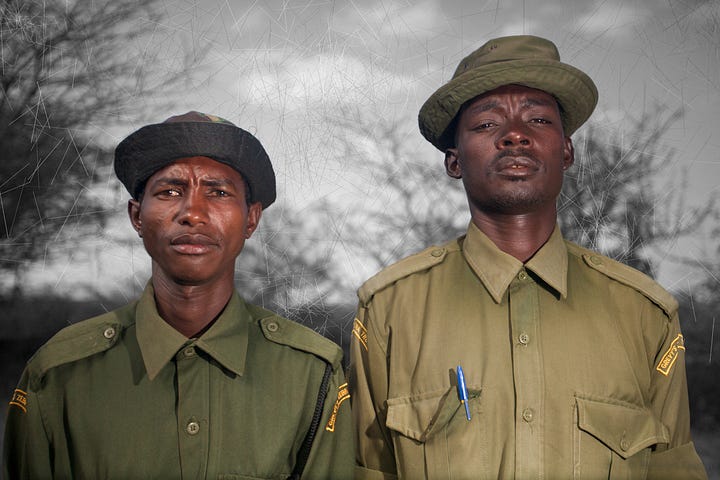
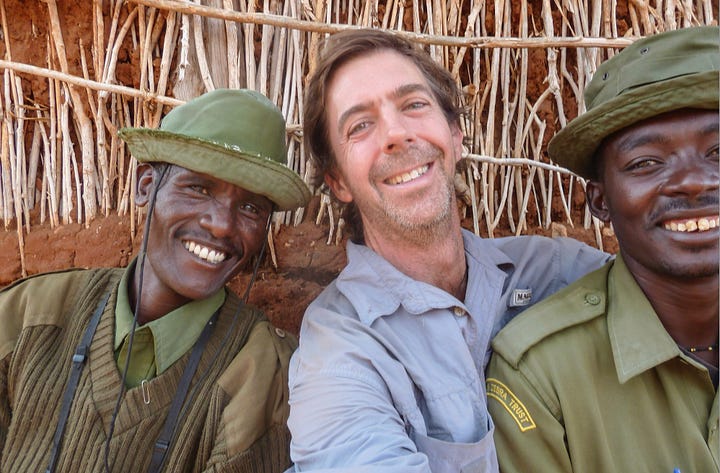
Food, Sex and Predators
Our brains love all this grouping. Those billions of neurons that do all the work of thinking inside us evolved as grouping machines – they excel at making categories and sticking things in them. Why? Because categorization is a really effective way to make sense of the complexity of the world around us. When our ancestors saw a big toothy thing, our brains needed to tell us right away if it fell into a box for “best avoid that” rather than spend a lot of time analyzing trying to remember all the details of everything that once chased us. If you need any other evidence of how important categorization is for us, think about all of the kids games that revolve around the idea “something in this picture is not like the others.” It’s a fundamental skill, and anyone who can’t do this is considered to have a significant impairment (check out the book in the reference here, it is amazing).2
So, we love to categorize things, and the thing we love to categorize most is… people. Other people. Which that is exactly what makes other so complex and so insidious. Whether we like it or not, our brain, in its constant search for food, sex and predators, is always going to be busy grouping and categorizing so that it can assess the world around it.
I know what you’re thinking – that we aren’t hard wired, we can get around all this grouping and categorizing by really getting to know things and people well. That is obviously true. You could probably fill a library with books about what other means to us and what we can do about it. As I said, Artists have been writing and painting about this forever. But for me, I’m going to wrap this up. It’s almost Christmas and I want to wrap gifts, see friends and eat cookies.
One takeaway… there will always be people trying to convince you that someone out there is an other who wants to eat your cat. Write about it, compose about it, create something to share your experiences and educate others. But for this moment, just past the turning of the year, open your heart to someone other. Maybe have coffee with someone. Or tea. Or whatever. It doesn’t matter.
That’s what this season should be about, after all.
What are your experiences of being othered?
Kevin first messaged me, because he wanted to know about other people’s experiences of being othered. Both he and I would love to hear your experiences. Please share your feelings, thoughts, experiences, stories in the comments on this post. Kevin and I would love to hear from you.
BTW: I deleted a ton of scraps from the end of this post that I’ll pull out and write on some other day. 🙂 One of them is how Large Language Models, the AI that produces ChatGPT and other chatbots, works by categorizing things too. Artificial creativity? Save that for another cup of coffee :)
Lynn Margulis and Dorian Sagan (1986), Microcosmos: Four Billion Years of Microbial Evolution, https://www.goodreads.com/book/show/979694.Microcosmos
Oliver Sacks (1985), The Man Who Mistook His Wife for a Hat. (One of the coolest and most famous books about how the brain works. You should definitely put this on your reading list if you’ve never read it.)



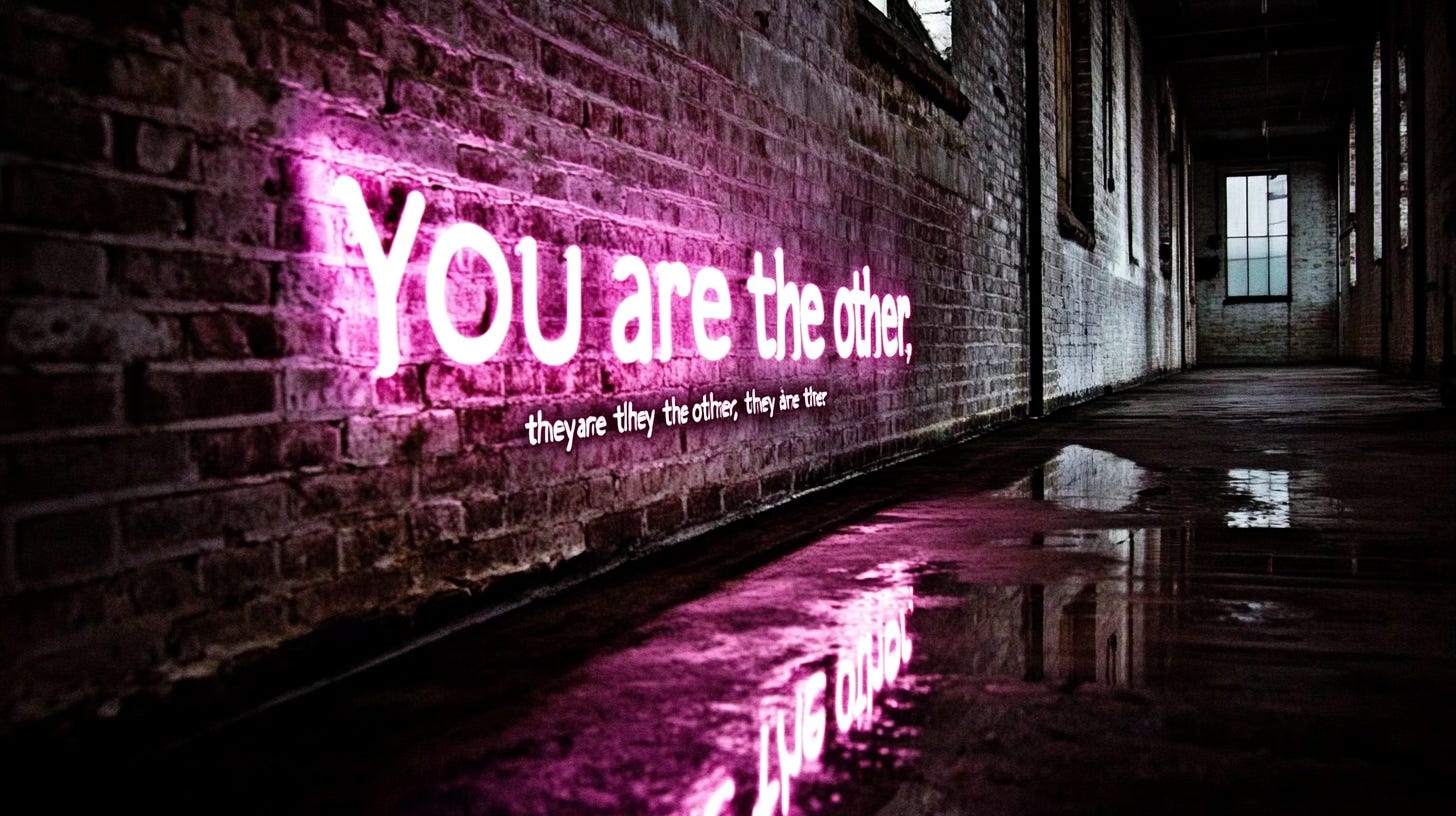
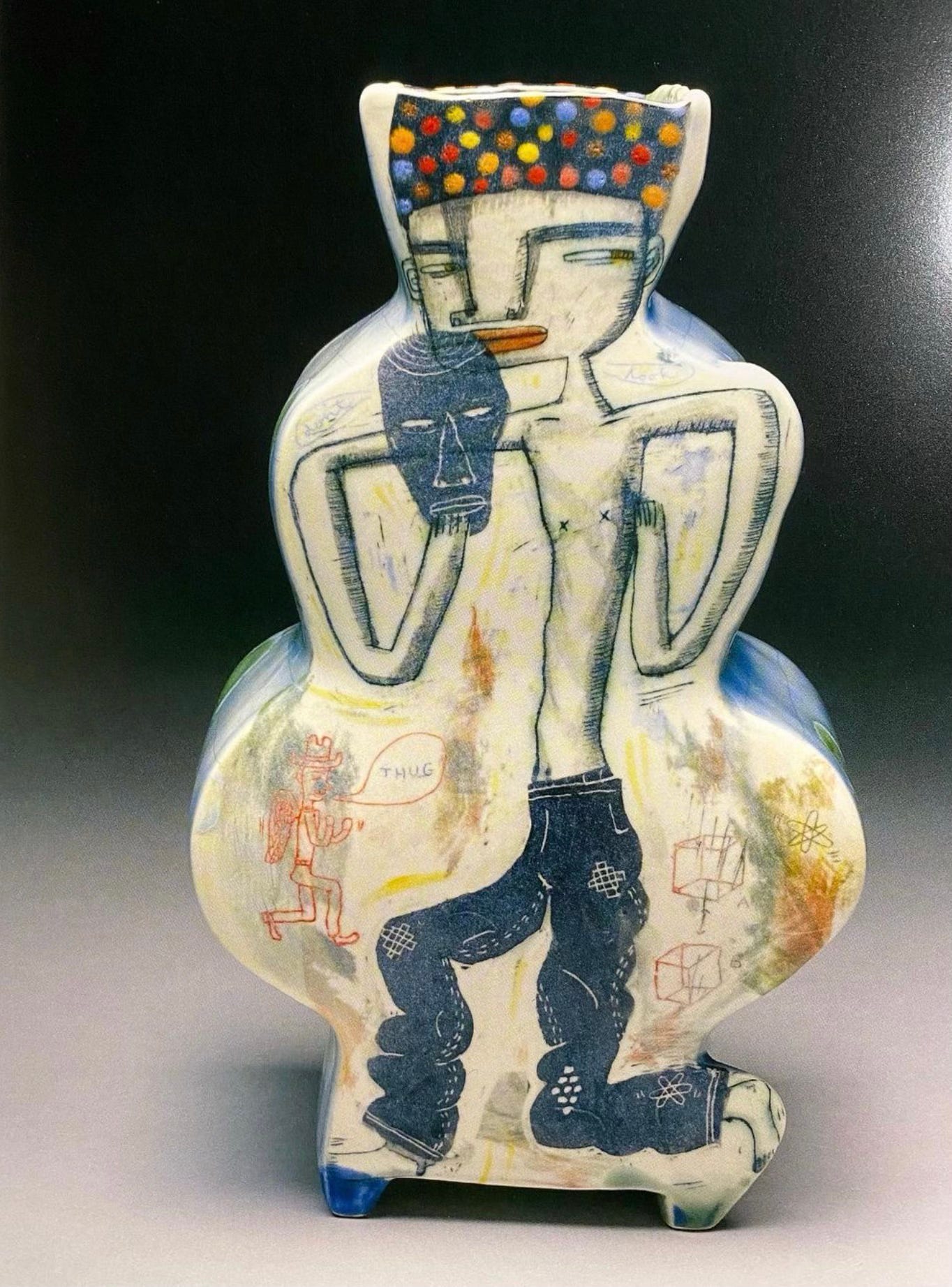
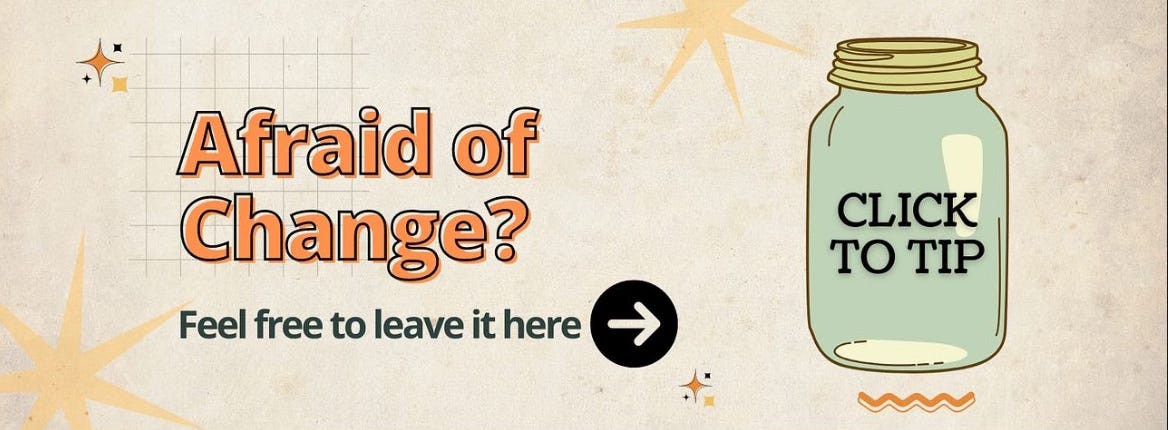
More great food for thought. Thank you! I was othered by my family when my “father” disowned me. Another kind of othering. Terrifically traumatizing. On the other hand, I think this is why I am always interested in meeting and listening to “others.” So that’s a silver lining. There’s a great doc about surfing called Step Into Liquid that shows people surfing in all sorts of places you wouldn’t guess. In one scene (spoiler) these guys from one part of Ireland teach kids from the “other” part how to surf. Made me weep. Happy Boxing Day!
Hey Nels,
I was all sucked in by the Food, Sex, and Predators title from grad school but there was a distinct lack of predators (of the biological sort) in the post!! Actually, I spent my whole long bath thinking about the other and its impact on my life. We have all had othering from the time we are tiny but it really hit me in college. I went to a small liberal arts school in Los Angeles. They were doing what I have come to think of as a social experiment which was labeled 'Multiculturalism'. The classes and culture emphasized the inherent value of ethnic identity and the anger that people should feel when they have been othered. I think they meant for it to bring us together but it just magnified the othering. I wasn't the base of the totem pole (that was reserved for the white males) but as a female white German American mutt I was pretty far down there. All the minorities of different colors and cultures formed their own tribes whose primary function seemed to be to exude anger and disdain of anyone who did not belong. I could have joined the female tribe that focused on othering the frat boys but I couldn't get into the anger part of it.
I still can't. When I talk to people about trying to understand the perspective of the other the consensus seems to be - "Not worth my time & furthermore you must be secret racist/sexist/other if you even want to talk to those people". It doesn't seem to matter what side of the spectrum they are on I have tried it with both sides. Sometimes even I feel like it isn't worth my time because I haven't yet found a gang of bad ass consensus builders to call my own. It is sort of like paddling upstream with a toothpick during a hurricane. It is not a message that anyone wants to hear. So my question is what makes people ready to listen? Historically it is suffering and ugliness . . . Really?! Aren't we done with that yet?